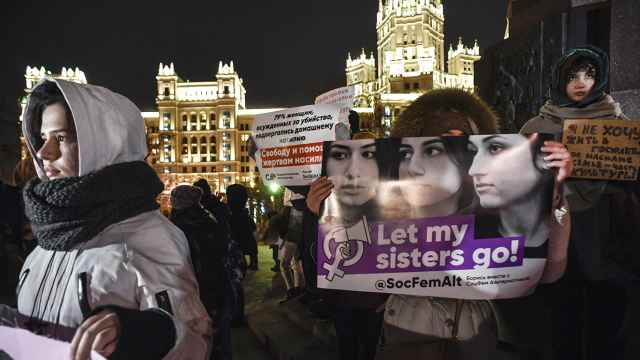When I was in Sochi to see the lighting of the Olympic flame, I was struck by how it carried dual symbolism. This ancient tradition signaled the beginning of one of the most fascinating and popular global spectacles. At the same time, the flame over the Black Sea resort was fueled by natural gas. Both literally and figuratively
Proceeds from the sale of hydrocarbons constitute half of the income of the Russian government, which paid the lion's share of the costs of the Olympic Games. A poll conducted by the Levada Center found that while 57 percent of Russians supported holding the Olympics in Sochi, 47 percent also believed that corruption was the main reason for its high costs. Government "vanity projects" in many countries — not only in Russia — are often rife with mismanagement and misappropriation. Corruption is often seen as a normal state of affairs, especially when bureaucrats are in charge.
There are reasons why corruption is taken for granted in some countries and not in others. The Russian Academy of National Economy and Public Administration recently published a report, "Resource Rents and Economic Growth," that argues that enrichment through government contacts in petro-states is one of the main obstacles to economic growth and social development. One reason why resource economies are so often held back by corruption is that effective government control is much higher in the mineral industry than in other sectors. Natural resources are immovable while they remain under the earth's surface; firms cannot relocate their mines or oil wells as they can factories or call centers. That gives bureaucrats much more control and consequently creates numerous opportunities for "extracting rents."
Oil and mining industries employ a small percentage of the population, but they often generate a very disproportionate share of gross domestic income. Thus redistribution in its many forms — transfers, subsidies and also large state-run vanity projects — constitute a very important function of rentier states. Instead of investing in production, people are enticed to invest in capturing such transfers to satisfy their own interests. In large petro-states with massive budgets, even a minor position in the hierarchy can generate significant returns. That often develops into a system of rent-seeking that pervades the bureaucracy from top to bottom.
The lower the quality of institutions such as property rights, an independent judiciary, regulation and law enforcement, the more profitable it is to engage in rent-seeking and the less profitable it is to engage in productive entrepreneurship. As a result, in resource economies with weak institutions there are fewer producers, more rent-seekers and slower economic growth.
A higher natural resource income can actually reduce total incomes, as has been shown by U.S. scholar Terry Lynn Karl in her seminal book "The Paradox of Plenty: Oil Booms and Petro-States." The list of resource economies with the most evident institutional failures includes countries such as Venezuela, Iran, Nigeria, Libya and Algeria.
A strong trend is visible. In resource-exporting countries with developed institutions and higher levels of economic freedom, both real per capita income and human development scores are higher, there is more investment, more civil rights and — not surprisingly — less corruption. Essentially, it is the quality of institutions that determines whether natural resource abundance boosts or stifles growth and development. The good news is that a number of countries, such as Canada, Australia, Norway, and Chile, demonstrate that it is possible to build a modern, prosperous and transparent economy that has a significant share of income from the sale of minerals. A resource-exporting country can catch up in its economic and social development if it improves its institutional framework. Even with relatively small improvements, the results are positive and quite significant.
For people in Russia, the Winter Olympics in Sochi were a perfect occasion to celebrate the achievements of national athletes who exceeded all expectations in the medal count. The emotional and historical value of the Games for most Russians is probably more significant than financial controversies and the evidence of various blunders that was spreading through social networks. This is one vanity project where pride overwhelms other considerations.
However, after the paralympic athletes get their long-awaited medals in March and all the festivities are over, it will be back to business as usual. The Sochi Games give a strong boost to national morale but not to GDP growth, which is worryingly low in Russia these days. Economic growth is a function of increased productivity. Mega investments in projects run by bureaucrats do not increase overall productivity. In most cases they decrease it.
Strong institutions are the key to making gains in economic efficiency and growth. Improving the institutional framework is possible but also very difficult. Winning this uphill battle will be harder than persuading the International Olympic Committee in Guatemala in 2007 or even winning 33 medals in Sochi.
Peter Kaznacheev is an associate professor and senior research fellow in energy and natural resources at the Russian Academy of National Economy and Public Administration.
A Message from The Moscow Times:
Dear readers,
We are facing unprecedented challenges. Russia's Prosecutor General's Office has designated The Moscow Times as an "undesirable" organization, criminalizing our work and putting our staff at risk of prosecution. This follows our earlier unjust labeling as a "foreign agent."
These actions are direct attempts to silence independent journalism in Russia. The authorities claim our work "discredits the decisions of the Russian leadership." We see things differently: we strive to provide accurate, unbiased reporting on Russia.
We, the journalists of The Moscow Times, refuse to be silenced. But to continue our work, we need your help.
Your support, no matter how small, makes a world of difference. If you can, please support us monthly starting from just $2. It's quick to set up, and every contribution makes a significant impact.
By supporting The Moscow Times, you're defending open, independent journalism in the face of repression. Thank you for standing with us.
Remind me later.







